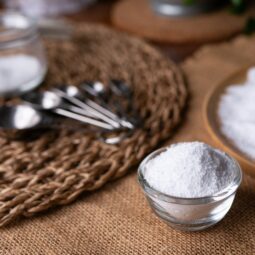
“Many patients have come to me with persistent pain — from scar tissue, chronic tendinitis or plantar fasciitis — that they thought they’d have to live with for the rest of their lives,” says Makindra Fitton, DPT, our lead physical therapist at our Tigard location. “Astym® was the answer for them. It resolved their pain and returned them to the lifestyle they thought they’d never be able to live again.”
Astym is a physical therapy technique that uses specially designed tools to stimulate circulation and activate the body’s natural healing response. The tools themselves aren’t much to look at — just a piece of hard, sculpted plastic with a blunt edge designed to glide across the skin. But when used correctly and drawn along the length of a muscle or tendon, they loosen restrictions, scar tissue and calcifications in the soft tissues below the surface.
“The speed of recovery is probably Astym’s biggest benefit,” says Makindra. “We often can resolve a patient’s pain and limitations in less than half the time that it would take without this tool. Its ability to stimulate natural tissue healing and regeneration far surpasses what we can do with our hands alone.”
Several physical therapists at The Portland Clinic are certified to provide Astym therapy safely and appropriately. “It works for many conditions,” says Makindra, “but it seems especially successful for tendinitis (in the Achilles, elbow, biceps or rotator cuff tendons), plantar fasciitis, ITB syndrome (a common cause of runner’s knee), joint stiffness, soft-tissue trauma such as ankle sprains and whiplash, and either old or new scar tissue.”
To learn more, connect with our physical therapy department or visit Astym.com.


